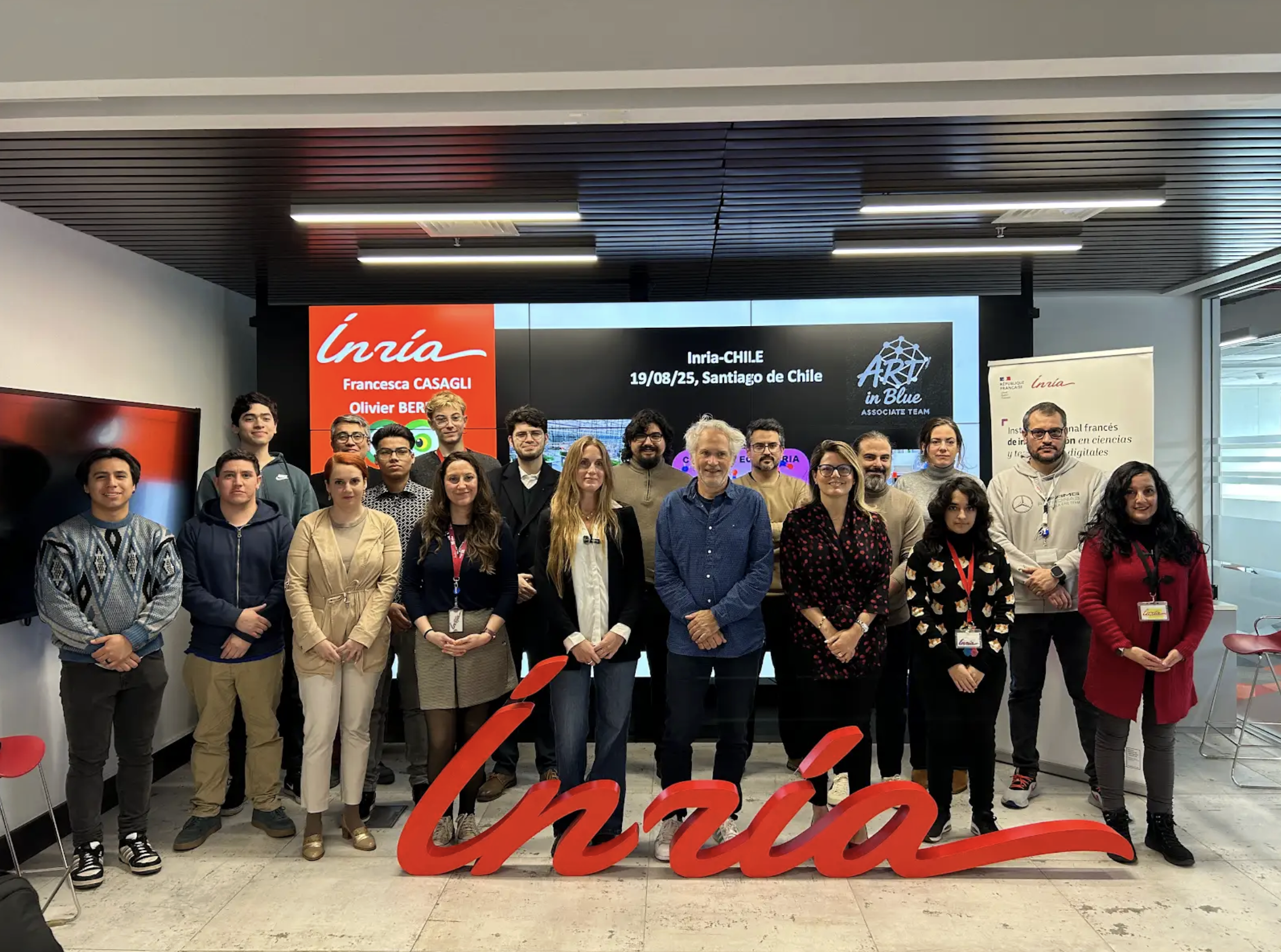
Microalgae are microorganisms with strong potential for water decontamination and the transition to clean energy. To optimise and scale up these biotechnological solutions, researchers such as Olivier Bernard, a Research Director at Inria and head of the GreenOwl team at the Inria Centre at Université Côte d’Azur, and Francesca Casagli, a researcher in the same team, use mathematical modelling and artificial intelligence. During their visit to Inria Chile, Bernard and Casagli presented their latest results in the Inria Chile Talk “Machine Learning and Modeling for biofuels, wastewater treatment and resource recovery”, and shared their advances in a technical exchange that included questions from the audience
Olivier Bernard is a Research Director at Inria and leads the GreenOwl team. An engineer from École Centrale de Lyon, he holds a master’s degree in Control Science and a PhD in Biological Oceanography from Sorbonne Université. He joined Inria in 1999 and has worked on the modelling and control of artificial ecosystems, with more than 200 publications. He also coordinates the Franco-Chilean Associated Team Art’In Blue.
What is GreenOwl?
GreenOwl is a joint Inria team with CNRS, Sorbonne Université (LOV: laboratoire d’Océanographie de Villefranche) and INRAE (ITAP: Technologies et Méthodes pour l’Agriculture de demain). GreenOwl is the continuation of the BIOCORE project-team. It focuses its research on microbial ecosystems and their capacity to adapt in a constantly changing world. Its aim is to understand how these ecosystems respond to climate change and to harness their adaptability to develop new sustainable solutions.
Franco-Chilean scientific collaboration
The GreenOwl team has a long history of collaboration with Chile, particularly through tools promoted by Inria Chile in the country, such as Associated Teams or the research internship programme at Inria in France — to date, the team has hosted five Chilean students within this Inria Chile Programme.
Today, Olivier Bernard leads the Associated Team Art’In Blue: Artificial Intelligence to understand and tame microbial ecosystems, together with David Jeison from the Pontificia Universidad Católica de Valparaíso, in which Francesca Casagli and the Inria Chile team also take part. Olivier and Francesca are also part of the OcéanIA project team — an Inria challenge led by Inria Chile involving several research teams from Chile and France — which seeks to develop new artificial-intelligence and mathematical-modelling tools to contribute to the understanding of the oceans, their role in regulating and maintaining the biosphere, and in climate change.
In the talk “Predicting temperature in microalgae cultivation systems”, Olivier Bernard presented strategies based on symbolic regression to build models capable of predicting the evolution of temperature in cultivation systems over several days — a key variable that constrains the behaviour of the medium and, consequently, the performance of microalgae.
Verbatim
Optimising the use of microorganisms for environmental applications is very complicated because many factors act on them. The main contribution of this research is to develop a simplified model that answers this question and better guides the development of future systems for environmental applications.
Research Director at Inria and head of the GreenOwl team, Centre Inria d’Université Côte d’Azur
Francesca Casagli presented “Current challenges for modelling phototrophic ecosystems”, focused on the modelling of algal–bacterial consortia for wastewater remediation and valorisation. The work compares different approaches to understand how these populations interact and to facilitate the industrial scale-up of such systems.
Verbatim
The key contribution is to try to understand the complex dynamics of microbial ecosystems through different hybrid modelling approaches, including machine-learning techniques, which can really help in scaling up this system that can be useful for water remediation and valorisation, and especially for recycling important elements such as nitrogen and phosphorus.
Investigadora del equipo GreenOwl
